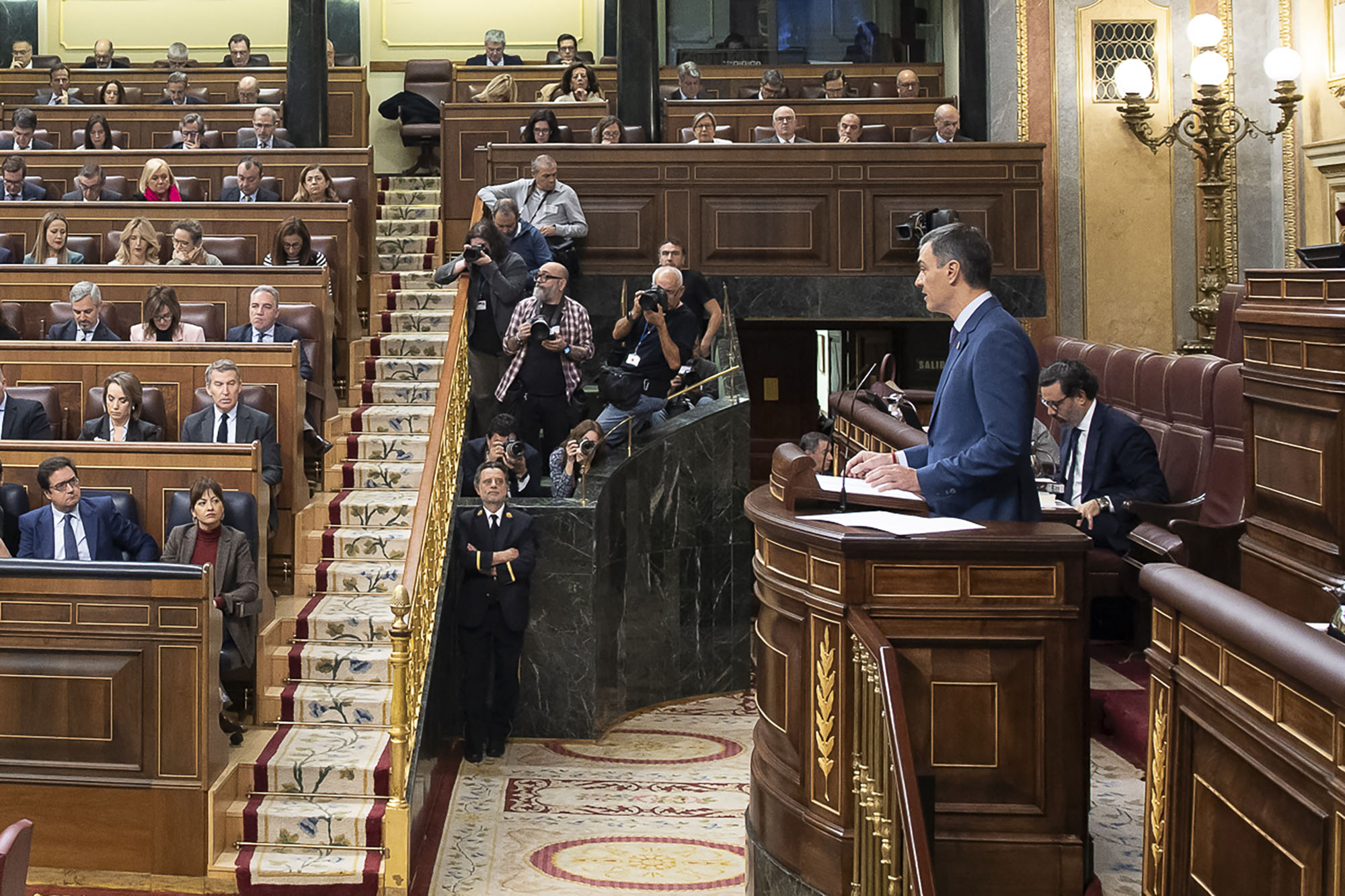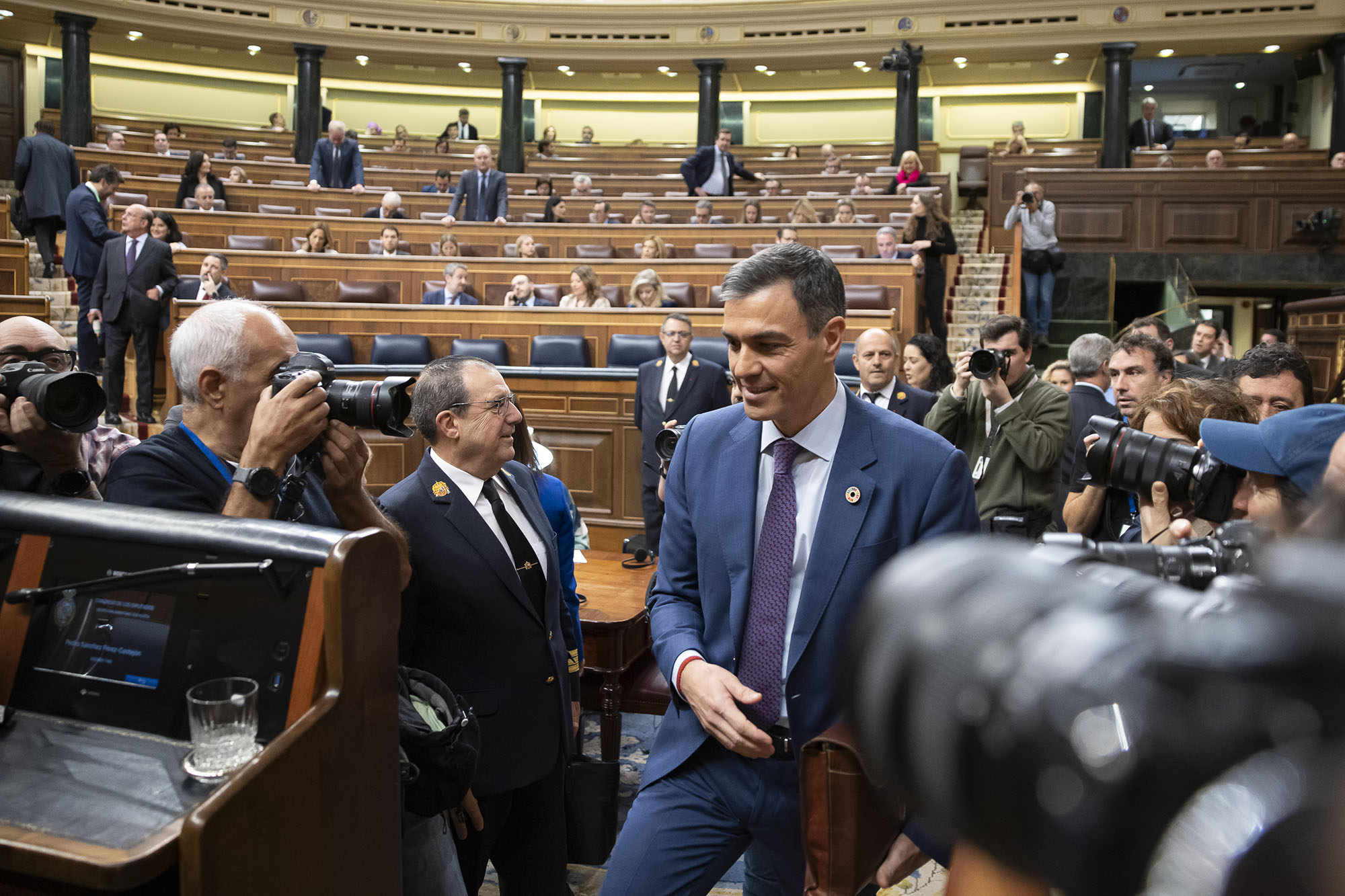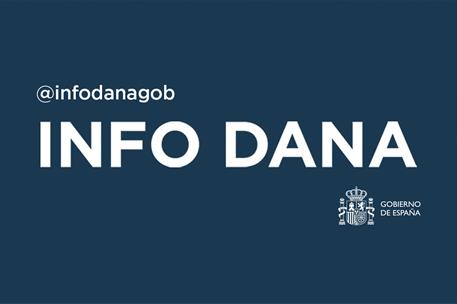Appearance in the Lower House of Parliament
Pedro Sánchez announces a new aid package of 2.274 billion euros for those affected by the DANA
President's News - 2024.11.27
Lower House of Parliament, Madrid
The President of the Government of Spain, Pedro Sánchez, appears in the Lower House of Parliament (Pool Congreso)
The President of the Government of Spain, Pedro Sánchez, has highlighted the actions of the Executive before, during and after the DANA, in his urgent appearance at his own request before the Plenary Session of the Lower House of Parliament to give an account of the actions taken to support the regional and local administrations in managing the emergency between 28 October and 4 November. During his speech in plenary he also announced a new aid package for those affected.
"I want to make it clear that the Government of Spain bodies did their duty," said Pedro Sánchez, after dedicating his first words to the memory of the victims of the tragedy and the support of their families and loved ones. "Their pain is the pain of the whole of Spanish society."
During his appearance, the president explained that the next Council of Ministers will approve a new aid package worth 2.274 billion euros, in addition to the two approved at the Councils of Ministers on 5 and 11 November. With the new aid package, which includes 60 measures and is part of the first two phases of the Immediate Response, Reconstruction and Relaunch Plan, which has been activated by the Government in the affected areas, a total of more than 16.6 billion euros has been mobilised.
"After this third package there will be as many as necessary. Because my Government is not going to stop working for the Valencian people until everyone has been able to return to normality," stressed the head of the Executive. "When the trouble spots are gone, the state will still be there, for as long as it takes, with whatever resources are necessary. We did it during the pandemic and we will do it again," he added.
Targets: citizens, vehicle fleet and business community
As Pedro Sánchez explained, the new aid package will reinforce the social shield already deployed to cover more groups. Thus, the right of persons other than cohabitants to receive death aid will be recognised, as well as the possibility for the relatives of the deceased to also receive the aid for damage to the home.
In addition, among other important measures focused on citizens, a line of aid will be approved to replace textbooks and school materials; the exceptional consideration of a situation assimilated to an accident at work of the processes caused by the DANA will be extended until 31 December; and the benefit for cessation of activity of the self-employed will be extended to all those who are benefiting from the so-called "flat rate" of contribution.
On the other hand, the Government will face the "great challenge" of the massive destruction of the Valencian vehicle fleet, with a plan for the renewal of the damaged vehicle fleet with an initial allocation of 465 million euros. According to the president, this plan will provide direct aid for the purchase of vehicles of up to 10,000 euros, which will not have to be repaid and which can be added to the compensation already being paid by the Insurance Compensation Consortium.
Finally, in a third chapter of measures aimed at companies, the president referred to a new line of 1.2 billion euros for the self-employed and industrial and tourism companies to repair their facilities; a "fast track" for preferential financing of reconstruction operations and recovery of innovative and technological capacities; aid for the reactivation of local trade and the internationalisation of affected companies; and 300 million euros in loans for affected SMEs wishing to acquire the latest technology and machinery.
 The President of the Government of Spain, Pedro Sánchez, during his appearance in the Lower House of Parliament | Pool Congreso
The President of the Government of Spain, Pedro Sánchez, during his appearance in the Lower House of Parliament | Pool Congreso
Inquiry Commission
In relation to the evaluation of the response to the tragedy, the leader of the Executive announced that the Council of Ministers will soon present an "exhaustive" report with chronograms and raw data on the management put in place and has assured that the Government is "open" to the creation of an inquiry commission in Congress to address this issue.
In this context, Pedro Sánchez has defended the effectiveness of the autonomous state: "Our system, based on decentralisation and co-governance, has followed the parameters recommended by most experts," said the president, adding that it is a system similar to that of some of the world's most developed countries and has allowed us to respond effectively to previous natural disasters.
"The system has not failed, some of its parts have failed," said the president, who suggested the need for collective reflection to evaluate how to improve the co-governance model, how to build "a true culture of prevention" and how to prepare cities for climate change. However, he said, this reflection "cannot be rushed" and the priority must now be "to help the victims, rebuild infrastructure and restore services."
"I call on the parliamentary groups to join in this spirit. Let them not be swayed by any other calculation," he added. "Let's agree. Let us use our time and resources to find solutions. In restoring normality to people's lives. This is what citizens expect from us," he concluded.
"The Government did its duty"
In the face of the DANA, "the data was prepared, the warnings were issued, the information reached all the competent institutions," the head of the Executive stressed. "To say otherwise," he continued, "is to deny the evidence, it's to throw balls out of the window and it's to insult the professionalism of hundreds of public servants who acted in accordance with the protocols and did their job well."
In this regard, Pedro Sánchez recalled that the National Civil Protection System Act 17/2015 and the Valencian Civil Protection and Emergency Management Act 13/2010 establish "with meridian clarity" that, in level 2 emergency situations of this type, the sole command corresponds to the autonomous community.
The Central Government has two main responsibilities. The first is to generate all the necessary information on meteorology and water flows. The second involves providing the autonomous community with all the means it requires and that exist to respond to the crisis.
"Did the Central Government fulfil these responsibilities? It did. It did so from the outset. It continues to do so. And we will continue to do so for as long as necessary until the reconstruction of the affected area is complete," the president of the Government of Spain insisted.
 The President of the Government of Spain, Pedro Sánchez, upon his arrival at the Lower House of Parliament | Pool Congreso
The President of the Government of Spain, Pedro Sánchez, upon his arrival at the Lower House of Parliament | Pool Congreso
Action by AEMET and the Júcar Hydrographic Confederation
With regard to the responsibility for generating meteorological and water flow information, Pedro Sánchez detailed the warnings on the DANA issued by the State Meteorological Agency (AEMET) from the one issued on Thursday 24 October, five days before the catastrophe, to the red level activated at 7:31 am on Tuesday 29 for the southern coast of Valencia and at 9:43 am for the entire province of Valencia, as well as the subsequent alerts.
Likewise, "there was no information blackout" with the Júcar Hydrographic Confederation on 29 October, he clarified. This organisation maintained constant communication with the Emergency Centre of the Generalitat Valenciana throughout the entire period of the DANA, including the warning about the increase in the flow of the Barranco del Poyo at 12:07 on Tuesday 29 October.
Proof that both the AEMET and the Júcar Hydrographic Confederation "fulfilled their duty" and that they did so "with the rigour, speed and transparency dictated by Spanish law and the most advanced international standards" is - explained Pedro Sánchez - that numerous institutions took measures based on the meteorological and water flow information provided by these bodies.
According to the head of the Executive, 68 municipalities in Valencia, Alicante and Castellón took the decision to suspend classes on Monday 28, the day before the tragedy, and on Tuesday 29, numerous town councils such as Carcaixent and Aldaia closed access to several streets and flood zones, and others such as Torrent suspended all public and educational activities.
Also the Diputación de Valencia sent its workers home at midday, some departments of the Generalitat Valenciana took measures to limit the exposure of their workers to the DANA from early in the morning, the Universitat de Valencia cancelled its teaching activities, and the Universitat Politècnica and the Universidad Católica closed some of their campuses. As did a multitude of companies such as Ford and other small and medium-sized companies.
Resourcing the Generalitat Valenciana
As for the second set of responsibilities of the Government of Spain in emergencies such as this one, which is to provide all the resources and aid that the autonomous community needs and requests, Pedro Sánchez pointed out that "the Government of Spain was prepared from the very first moment."
In fact, the Ministry of Defence ordered the Military Emergency Unit (UME) to prepare for a possible intervention at 9:00 am on Tuesday 29. Since then, the president detailed, a total of 20,000 workers have been deployed in the affected areas, including 8,500 members of the armed forces, 9,300 police and civil guards, 300 forestry brigades, 800 road and railway workers and 80 forensic doctors and psychologists.
Non official translation







